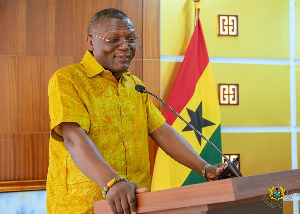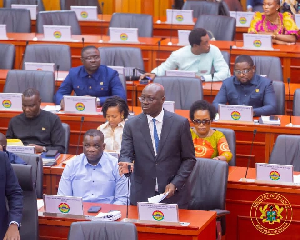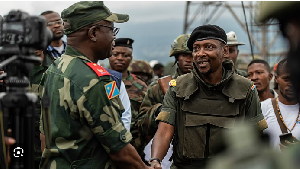Bolgatanga, Aug. 2, GNA - A workshop for stakeholders seeking to bring sustainable peace and improve the livelihoods of the people of the three northern regions has been held in Tamale over the weekend. The workshop organised by some umbrella organisations of the UN, would also discuss solutions in conflict prone areas as well as conflict management and food security to validate a baseline survey conducted two years ago. The validation would enable a human security project to begin in the three northern regions.
The project would have a food security and nutrition component, which would be co-managed by the Food and Agriculture Organization (FAO) and the World Food Programme to be manned by the United Nation University. The project is also expected to monitor schools in conflict prone areas to safeguard pupils from abuse. The other areas include ensuring human security and promoting peace, empowering women economically and ensuring child safety and care which would be manned by the United Nations Children's Education Fund (UNICEF) and the United Nations Development Programme (UNDP). Stakeholders from various district assemblies, Non-Governmental
Organizations operating in the three northern regions, economic analysts, senior security personnel drawn from the Ghana Police Service, the Ghana Immigration Service, the Military, the Ghana National Fire Service, the media and officials from the Upper East Regional Coordinating Council are attending the workshop.
The Deputy Country Representative of the UNDP, Mr Shigeki Komatsubara, told the participants that the team was in the region to seek a holistic approach in addressing and managing conflicts when they occur and identify and manage disasters both natural and man-made in the three northern regions with urgency. He indicated that in working to bring development to the people, it was necessary to involve them from the scratch in evolving the programmes to salvage their situation. He said the team sees the people as key partners in achieving the goals of the programme, adding that, the team was in the region to solicit views from stakeholders on how the UN agencies could execute the project to benefit the people, especially the vulnerable.
Mr Komatsubara observed that effective development could only come about when there is peace and stability, where it presupposed that human security is assured including free movement of people, goods and services, the right to basic needs such as food and shelter as well as the right to move without impediments from anybody.
Mr Komatsubara said in spite of the limited resources allocated to the team, it was determined to network effectively to achieve the expected results, adding, "we really believe in you and believe working with you we can bring the necessary change in your communities." When it takes off fully, the Human Security Project would seek to build the capacity of security institutions and community members in human rights issues and the rule of law, advocate for mechanisms for the prevention, management and resolution of conflicts and armed violence and to institutionalize outcomes from these trainings at the local levels by the year 2011.
Under its economic empowerment component, the project would be expected to initiate at least 10 new major businesses in the project areas with the expectation that productivity of entrepreneurs would have increased by 75 per cent with the income of targeted beneficiaries increased within the same period. The project would further build the capacity of local government and civic institutions for democratic governance and develop an integrative approach to conflict sensitivity within the working areas during the project period. Under this component, it would organize training programmes in conflict analysis and human resource skills auditing, train youth volunteer facilitators in leadership, conflict prevention and early warning risk and disaster management skills and support network of journalists promoting conflict prevention and community development among others.
A Programme Analyst with the UNDP, Ms. Christy Ahenkora Banya, who gave an overview of the workshop noted that the three northern regions were not only prone to conflicts but that they were also susceptible to natural disasters thereby rendering the people in the area vulnerable with high poverty levels.
Regional News of Sunday, 2 August 2009
Source: GNA












